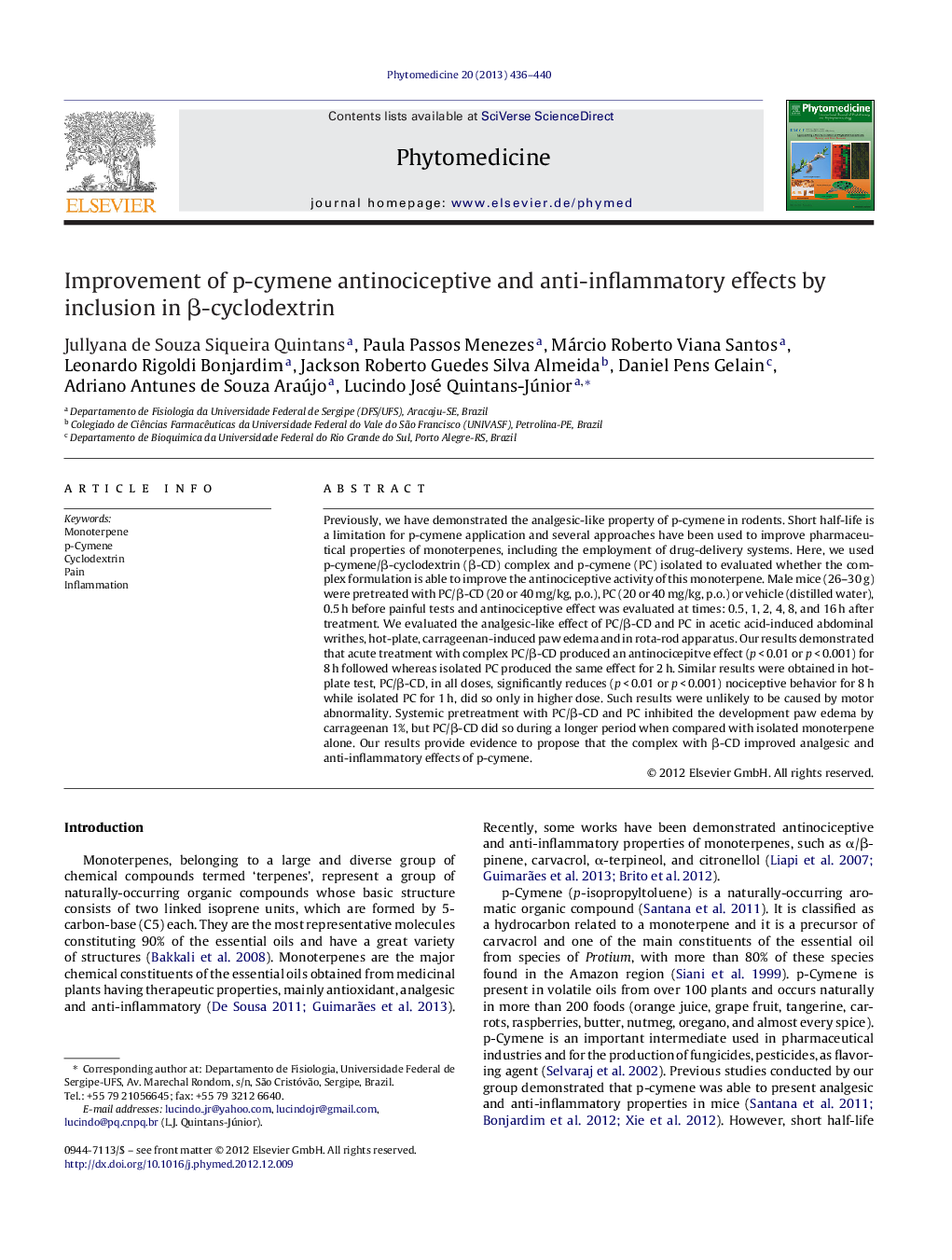| Article ID | Journal | Published Year | Pages | File Type |
|---|---|---|---|---|
| 5816736 | Phytomedicine | 2013 | 5 Pages |
Abstract
Previously, we have demonstrated the analgesic-like property of p-cymene in rodents. Short half-life is a limitation for p-cymene application and several approaches have been used to improve pharmaceutical properties of monoterpenes, including the employment of drug-delivery systems. Here, we used p-cymene/β-cyclodextrin (β-CD) complex and p-cymene (PC) isolated to evaluated whether the complex formulation is able to improve the antinociceptive activity of this monoterpene. Male mice (26-30 g) were pretreated with PC/β-CD (20 or 40 mg/kg, p.o.), PC (20 or 40 mg/kg, p.o.) or vehicle (distilled water), 0.5 h before painful tests and antinociceptive effect was evaluated at times: 0.5, 1, 2, 4, 8, and 16 h after treatment. We evaluated the analgesic-like effect of PC/β-CD and PC in acetic acid-induced abdominal writhes, hot-plate, carrageenan-induced paw edema and in rota-rod apparatus. Our results demonstrated that acute treatment with complex PC/β-CD produced an antinocicepitve effect (p < 0.01 or p < 0.001) for 8 h followed whereas isolated PC produced the same effect for 2 h. Similar results were obtained in hot-plate test, PC/β-CD, in all doses, significantly reduces (p < 0.01 or p < 0.001) nociceptive behavior for 8 h while isolated PC for 1 h, did so only in higher dose. Such results were unlikely to be caused by motor abnormality. Systemic pretreatment with PC/β-CD and PC inhibited the development paw edema by carrageenan 1%, but PC/β-CD did so during a longer period when compared with isolated monoterpene alone. Our results provide evidence to propose that the complex with β-CD improved analgesic and anti-inflammatory effects of p-cymene.
Related Topics
Life Sciences
Biochemistry, Genetics and Molecular Biology
Clinical Biochemistry
Authors
Jullyana de Souza Siqueira Quintans, Paula Passos Menezes, Márcio Roberto Viana Santos, Leonardo Rigoldi Bonjardim, Jackson Roberto Guedes Silva Almeida, Daniel Pens Gelain, Adriano Antunes de Souza Araújo, Lucindo José Quintans-Júnior,
